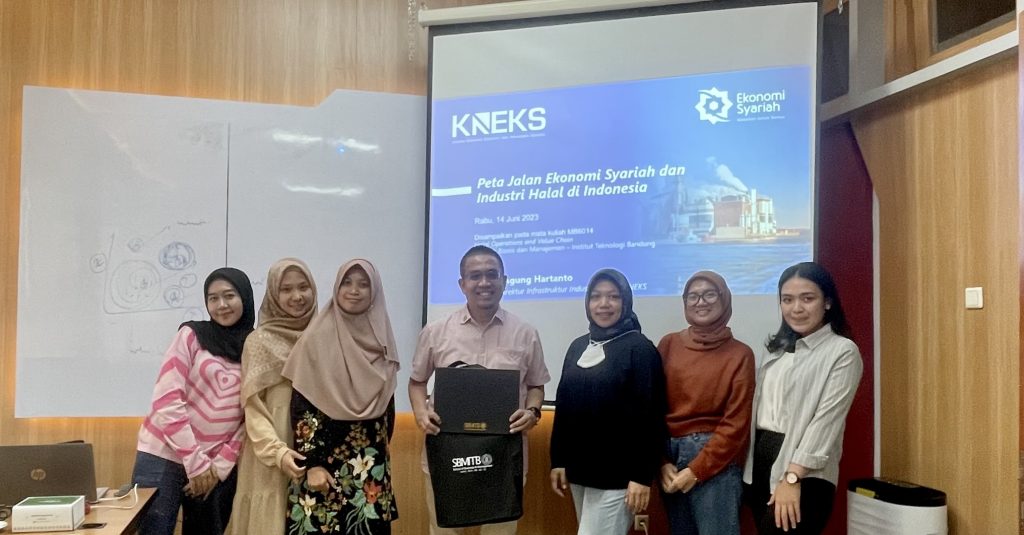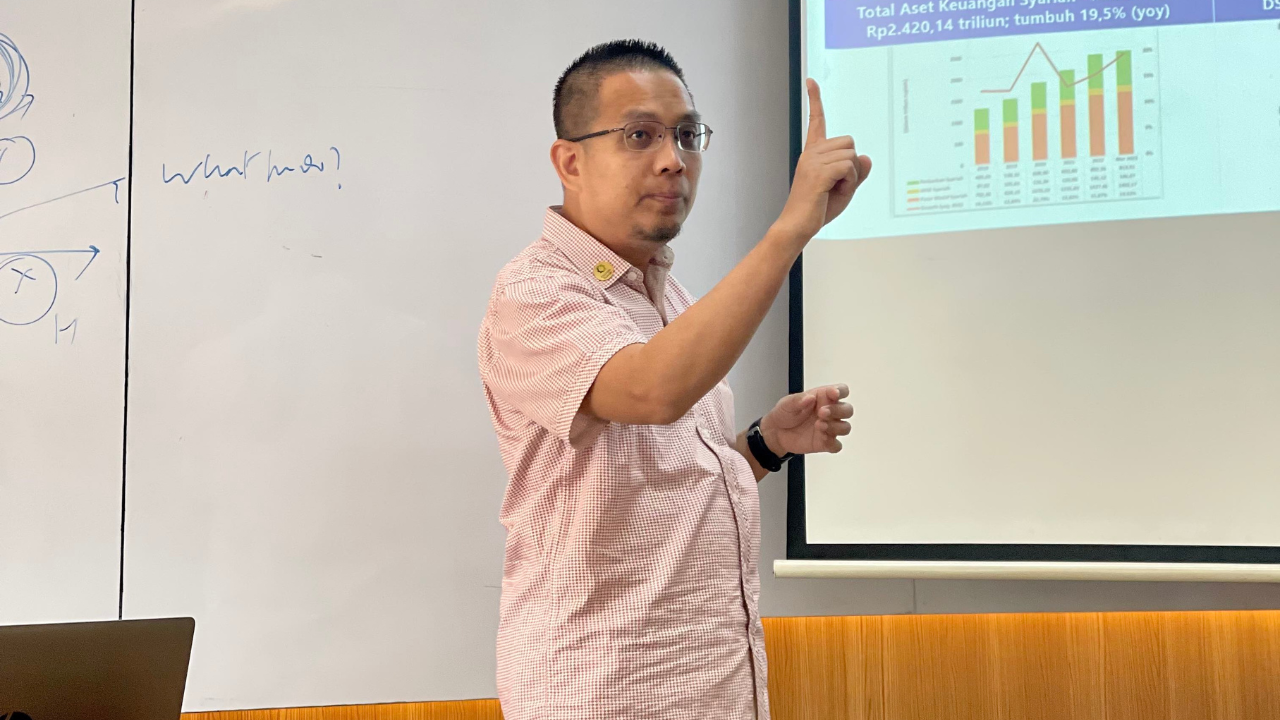The Islamic economy is a core part of post-pandemic economic recovery policies in several countries. In Indonesia, the Sharia economy continues growing and shows encouraging developments.
Bank Indonesia (BI) in the Indonesia Halal Market Reports 2021/2022 notes that the potential contribution of the Islamic economy is US$ 5.1 billion to the national GDP. Among them through the export of halal products, the growth of foreign investment, and import substitution.
Observing the trend of industrialization nationally and globally, the industrial area currently growing is the Halal Industrial Area (Kawasan industri Halal-KIH). Three halal industrial areas in Indonesia have been developed: Halal Industrial Park Sidoarjo, Modern Halal Valley Cikande, and Bintan Inti Halal Hub.
This was conveyed by Binsar Agung Hartanto, Deputy Director of Halal Industry Infrastructure at the National Sharia Economic and Finance Committee (KNEKS), as a guest lecturer on Halal Operations and Value Chain on Thursday (14/6). Binsar said that the strategic goals of developing KIH were to attract investors and tenants, accommodate MSMEs to increase capacity and business sustainability, and make KIH a hub for halal raw materials that would support medium and large businesses, to become part of the global halal supply chain.
The potential for KIH development is not only limited to an industrial area but in the form of other economic zones in Indonesia, for example, special economic zones, bonded zones, bonded logistics centers, free trade areas, and free ports. In accordance with its objectives, the existing economic development areas in Indonesia aim to attract investors to invest in Indonesia. With its various advantages, the economic zone provides various fiscal and non-fiscal facilities regulated in various regulations.





